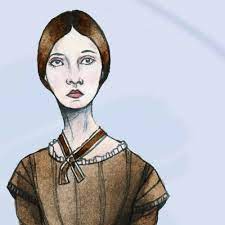Bang Bang, Shoot Shoot
I have not had a lot of experience with Emily Dickinson before this class, so it has been interesting to read some of her poems for the first time. One of my favorites is her “My Life had stood—a Loaded Gun—”. I am most intrigued by the poem’s central metaphor of women being guns. It encapsulates the oppression of women that is still prevalent in today’s world. Like when the gun is “identified— / And carried…away” (3-4), women are seen as worthless objects until someone, a man, decides to put value into them. At a quick glance, the speaker might seem to thrive in this role of submission. When she “speak[s] for Him— / The Mountains straight reply—” (7-8), meaning that the gun-owner, the man, wields her power to his own advantage. He does not need to talk while hunting or being out in the world because he has this forceful power that “talks” when it is shot. By evoking the image of wilderness with “Sovereign Woods” (5) and “Mountains” (8), a similar idea is presented that her compliance to him is natural and right. She lays by him while he sleeps, and she even calls him her Master. With this reading, the last stanza becomes a sort of lament:
Though I than He—may longer live
He longer must—than I—
For I have but the power to kill,
Without—the power to die— (21-24)
She knows he will die before her but she will not be able to die, even if she is ensconced in all this death and killing. This is woeful because her entire purpose and identity comes from being used by her master.
When this idea is put into terms of women and their positions in society, it is not something I can accept. I am more than aware of how this is true, still today and even more in the 1860s when the poem was published. Women are objects that are used and abused by men, but I do not want it to be this way. I think the speaker also feels the same. After the presentation and our discussion about the poem in class, I see a different way of interpreting the poem in which women are powerful beings slowly capturing their agency back from men. In various cases, every time the man uses the gun, it is more and more practice for the gun itself to detonate. It is indeed natural for women to be powerful and explosive like the gun is. Dickinson advances this idea with the imagery of the woman having a “Vesuvian face” (11), something that lies dormant but it is utterly devastating when it erupts. Every night when she guards her master while he sleep, she “lay a Yellow Eye— / Or an emphatic Thumb—” (19-20). She herself established in the previous lines that “None stir the second time” (18) whom she lays such an eye or thumb on. She is constantly gaining more experience about how to explode and explode with precision. She may be her master’s possession right now, but eventually she will be free from him. Thus, the meaning of the last stanza changes. Her master will die, but she will not. Women will endure through societal oppression and become their own masters. Who is to say who will be hurt during the process? Through the speaker, Dickinson is encouraging women and their strength, telling them that their time will come and it will be revolutionary when it does. After all, happiness is a warm gun in my hand.




Comments
Post a Comment